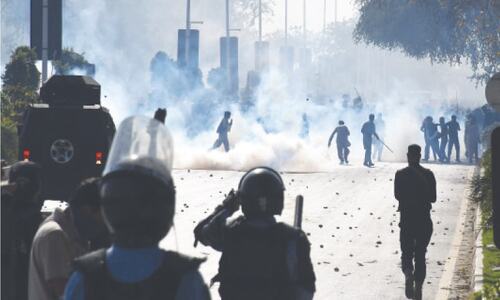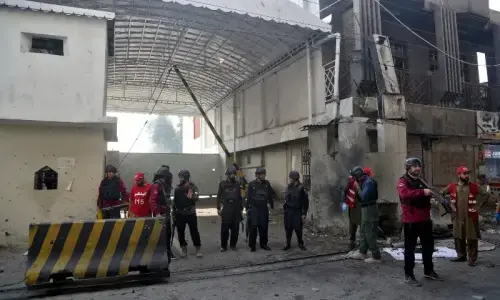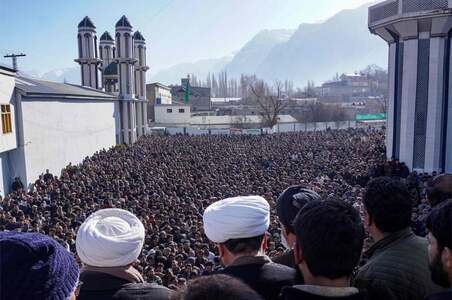• Lender to remain engaged with govt on loan despite political tensions
• Insists Pakistan needs significantly more financing for successful bailout review
THE government has told the International Monetary Fund (IMF) it would not implement a fuel subsidy programme as the two sides negotiate a long-delayed $1.1 billion bailout for the country, Bloomberg News reported on Thursday.
The IMF has also said that it would “continue engagement with the government on the loan despite the ramp-up in political tensions”. The remarks came after the arrest of PTI chief Imran Khan on Tuesday sparked violent protests across the country.
As for fuel subsidy, Prime Minister Shehbaz Sharif in March proposed charging affluent consumers more for fuel, with the money raised used to subsidise prices for the poor who have been hit hard by inflation.
However, the government has now committed not to implement the cross-subsidy programme in the current fiscal year and beyond, an IMF spokesperson reportedly told Bloomberg.
The government also would not introduce new tax exemptions and would durably allow a market-based exchange rate for the rupee currency, the lender said.
The development came a day after Minister of State for Petroleum Musadik Malik said the government aimed to address IMF’s concerns before implementing its new fuel subsidy plan.
‘Significantly more financing’
Meanwhile, in a scheduled press conference on Thursday, the IMF said Pakistan needed significant additional financing to successfully complete the long-stalled ninth review of the IMF’s bailout package, Reuters reported.
Obtaining commitments of “significant additional financing” is essential before the IMF approves the release of pending bailout funds that are crucial for Pakistan to resolve an acute balance of payments crisis.
A staff-level accord to release the $1.1bn tranche out of a $6.5bn IMF package has been delayed since November, with nearly 100 days gone since the last staff-level mission to Pakistan. That is the longest such gap since at least 2008.
Julie Kozack, IMF spokeswoman, said that financing already committed by Pakistan’s external partners was welcomed.
The United Arab Emirates, Saudi Arabia and China came to Pakistan’s assistance in March and April with pledges that would cover some of the funding deficit.
On Thursday, reserves held by the State Bank of Pakistan fell $74m to $4.38bn, barely a month’s worth of imports.
“Our team is very heavily engaged of course with the Pakistani authorities, because Pakistan indeed faces a very challenging situation,” Ms Kozack said.
She said the economy was facing stagflation, had very large financing needs and had also been affected by a series of shocks, including severe floods.
Published in Dawn, May 12th, 2023































